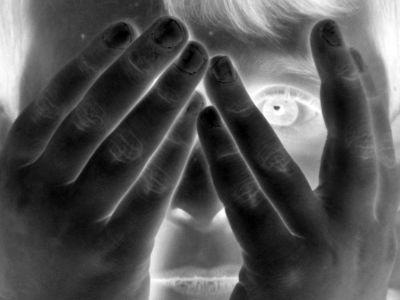Smartphones are mass-producing dopamine addicts, is there a way to get out of the addiction?

Digital media such as Twitter, Instagram, and Netflix have permeated our daily lives through smartphones. But given that many people are addicted to dopamine because of digital media, why people get addicted to dopamine and how to get out of it, Stanford Addiction Medicine Dual Diagnosis, an Addiction Treatment Center at Stanford University. Clinic Chief and Psychiatrist Dr. Anna Lembke explains.
Constant craving: how digital media turned us all into dopamine addicts | Life and style | The Guardian
Dopamine , a neurotransmitter released by the brain, is known as a substance related to 'pleasure', but in reality it is a substance that 'motivates people to take actions that provide pleasure' rather than giving pleasure or joy itself. is. Dopamine causes behaviors such as 'finding pizza on an empty stomach' and 'seeking sexual activity when sexually aroused', so scientists use dopamine as an indicator of 'dependence on experience' and dopamine. It is judged that the higher the amount of release, the higher the addiction.
Dopamine is released when you 'take action in anticipation of what will happen in the future,' but the amount of dopamine decreases when 'what happens in the future' actually happens. When the amount of dopamine falls, there is a craving for 'I want to eat another chocolate' and 'Let's watch another episode' in search of further dopamine release, but if the addiction symptoms are not serious, such craving will occur. It will pass soon.

Such a mechanism was naturally built into the human brain and originally worked to keep human ancestors searching for delicious food. The brain's ability to reduce dopamine levels and
In other words, the situation of being constantly immersed in 'easy pleasure' is used only by the limbic system related to emotions and emotions, not the prefrontal cortex, which is important for future planning and problem solving and personality development. It means that it has been broken. Escaping into the 'easy-to-find pastime' of digital media when a person encounters a life challenge has changed the way we spend our 'stress-accepting situation.' Has lost the ability to postpone pleasure, solve problems, and deal with various forms of pain and frustration, 'says Dr. Rembke.
If you want to stop your addiction to digital media, it is recommended that you do a 'digital fast' every 24 hours to a month. The purpose of digital fasting is not to 'stop touching digital media at all', but to understand 'moderate ways of enjoying', resetting the circuits of the brain by digital fasting, and how much you depend on digital media. It is important to understand whether it is. Since the transition from 'abstinence to moderation' is easier than the transition from 'excessive use to moderation', first temporarily cut off digital media and then 'use only on weekends'. It is recommended to try a specific usage such as 'not used in the bedroom'. Dr. Rembke advises that the longer the period of digital fasting, the better, and especially during the first 12 hours of intense thirst, creating a 'state of inaccessibility to digital media.'

Although the above idea of 'digital detox' is not new, Dr. Rembke does not guarantee the 'happiness beyond digital detox' that many people call. It's natural for people to seek joy, but Dr. Rembke points out that 'consumer culture has created the expectation that life should be more enjoyable!' 'It's not really the case. Life is painful, and paradoxically, happiness comes when one admits it and knows that one isn't lonely in conflict,' Dr. Rembke said. I did.
Related Posts:
in Note, Posted by darkhorse_log







